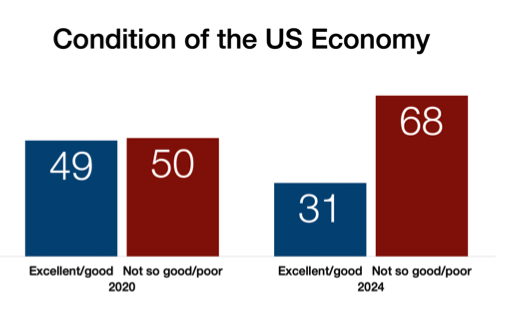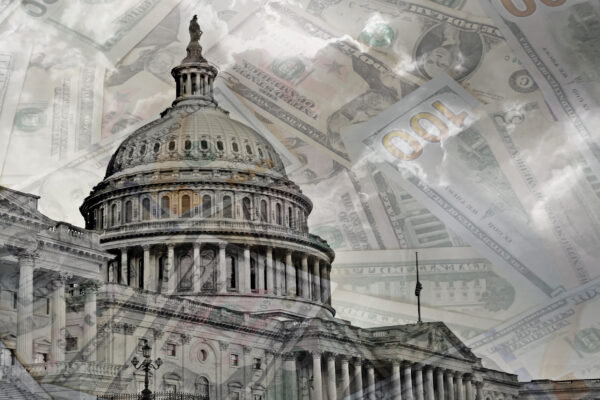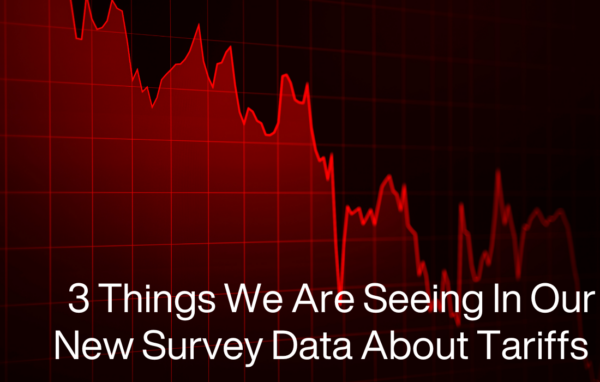In an interview on Sunday, President-elect Trump attributed his win to a simple reason: ”Very simple word, groceries… I started using the word – the groceries. When you buy apples, when you buy bacon, when you buy eggs, they would double and triple the price over a short period of time, and I won an election based on that.”
Going into the November election, our presidential inflation showed a cumulative price increase of 20.7% since the beginning of the Biden administration, with food costs up almost 23% (22.8%.)
As some context for his statement, here are some of the economic numbers from the election:
- The condition of the nation’s economy was seen as negative: 31% excellent/good – 68% not so good/poor.
- An overwhelming 75% of the electorate said inflation had posed some level of hardship for them and their families. 22% said inflation had been a severe hardship; 53% said a moderate hardship; while 24% said there had been no hardship.
- Additionally, voters were asked who they trusted more to handle the economy, Trump or Harris; Trump won 53-46.
- In the Winston Group post election survey of 1,250 respondents who voted, economy/inflation was the top issue at 40%, with immigration a distant second at 12%, and abortion right behind at 11%. No other issue was in double digits.
- The challenge that clearly emerged for Biden and Harris was that voters’ view of the economy was much worse than in the last election. In the 2020 exit polls, 49% said the economy was excellent/good, while 50% said not so good/poor. In this election, it dropped to 31-68.

These numbers demonstrate why the Biden White House was never able to overcome the inflation issue, and why the Harris campaign’s inability to articulate policy positions was such a problem.
For more analysis, see our post-election report.







